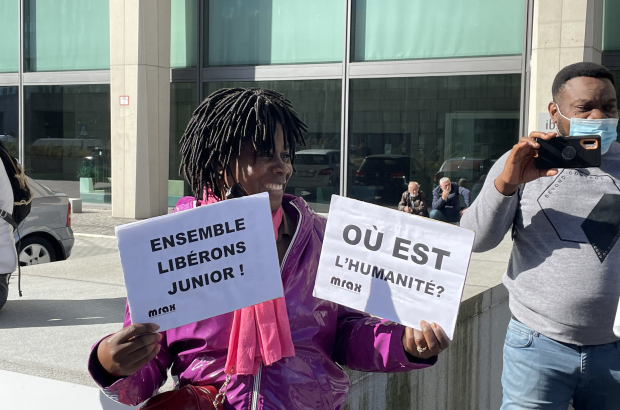- Daily & Weekly newsletters
- Buy & download The Bulletin
- Comment on our articles
Congolese student facing deportation allowed to stay in Belgium
Congolese student Junior Masudi Wasso, who had been detained in a holding centre since arriving in Belgium on 18 September, will not be deported and can begin his studies at the UCLouvain. The Foreigners’ Office decided to grant him access to the territory on Monday after the payment of his registration fees by the Congolese ministry of foreign affairs had been confirmed.
According to the statement from the Foreigners’ Office, when Junior arrived in Belgium, "the student did not meet the entry requirements. The border authorities have established that at the time of his entry into Belgium, his registration fees had not been paid and that the purpose of the student's trip was not sufficiently proven. It was only on Monday that it was confirmed that the Congolese Ministry of Foreign Affairs had paid the student's registration fees."
In the meantime, UCLouvain also provided additional information to help the student’s case, submitting documents that showed how the university assessed the student's suitability and intention to study at their university, according to the Foreigners’ Office.
Learning of this news through the press, Samuel Brym, Junior Masudi Wasso’s brother-in-law of who lives in Belgium, expressed his relief and confirmed that the Congolese ministry of foreign affairs had intervened. Brym insisted, however, that Junior had arrived in Belgium with an official document sealed by the Belgian consul, attesting to his father's solvency and his willingness to cover the cost of the young man's studies.
Junior’s lawyer Marie Doutrepont said she was satisfied with the outcome of the case, while expressing reservations about the reasons given by the Foreigners' Office to explain its outcome. It also considers that the case should lead to a fundamental reflection on the prerogative of the airport police during border controls.















